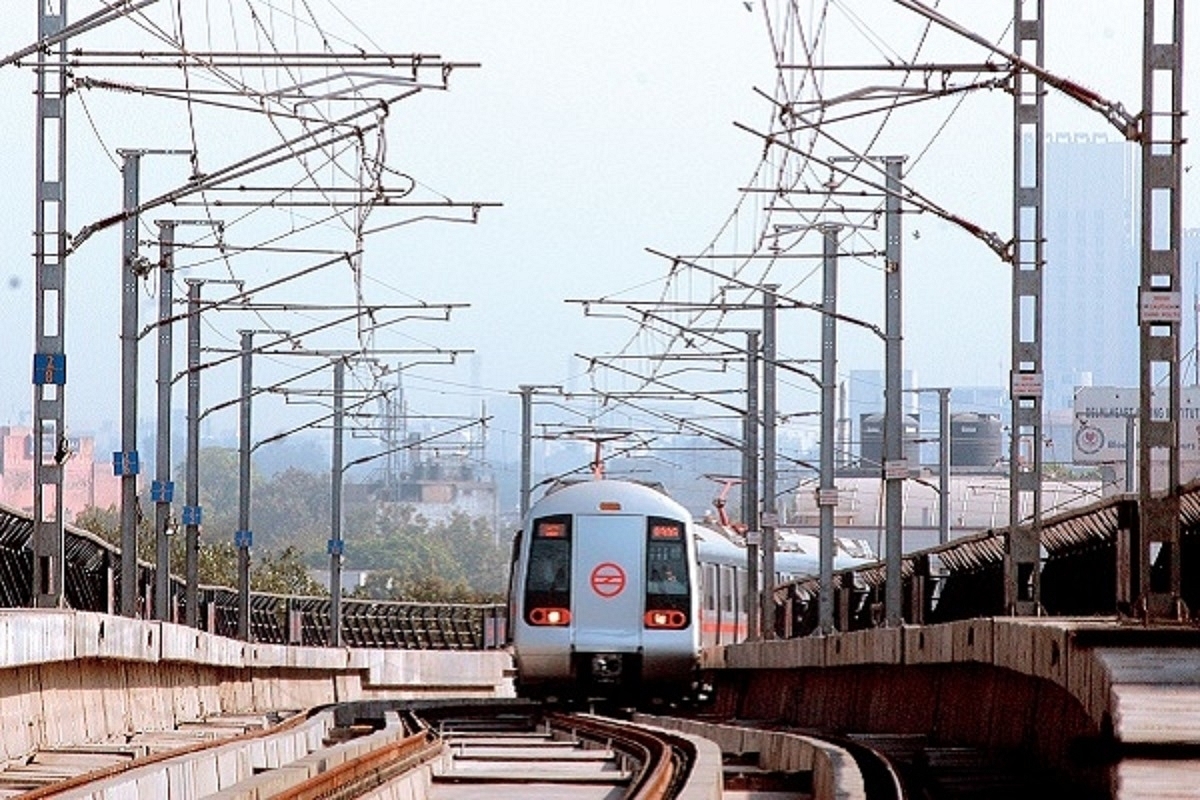Infrastructure
Delhi Metro To Go Contactless As DMRC Introduces QR Code-Based Paper Tickets Across Entire Network

Delhi Metro (Getty Images)
The Delhi Metro has introduced QR code-based paper tickets for travel on all its lines from 8 May 2023.
With the introduction of this facility, commuters will now be able to use the QR code-based paper tickets apart from the tokens.
To provide this facility, DMRC has upgraded its AFC (Automatic Fare Collection) gates and customer care counters to support the QR code-based paper tickets.
DMRC has undertaken QR ticket trials in a gradual manner across all its lines in recent days. Initially, two AFC gates; each for entry and exit, have been upgraded at all stations for travel by QR-based paper tickets.
Further, it is also targeted to make all the AFC gates across the network QR code-compliant by the end of June this year along with upgradation of Ticket Vending Machines (TVMs) for issuing of QR code-based paper tickets.
Delhi Metro, which began its operations in December 2002, currently has a network length of 391 km spread across 12 lines and 286 stations.
The Metro Authority is also targeting to introduce the mobile-based QR tickets by the end of May to make the travel in the Delhi Metro more seamless, easy and time-saving, eliminating the need for physically purchasing the tickets at the stations’ counters.
Mobile-based QR tickets are currently available only at Airport Express Line.
The tickets on the airport express line are issued using a mobile application and the commuters have to scan the QR code ticket, which is sent on the user’s mobile phone, at the AFC gate at the station.
Apart from the QR code facility, the airport Metro also allows the use of National Common Mobility Card (NCMC), which was launched by Prime Minister Narendra Modi in December 2019.
“The concept of issuing tokens will be gradually phased out with the introduction of these more transparent and human intervention free and cashless mechanisms thereby facilitating more convenient, seamless, time saving and error free travel for its passengers,” the DMRC said in a statement.
Benefits
A QR code (short for "Quick Response" code) is a type of two-dimensional barcode that contains a matrix of square grid arranged in a square over a white background. It can be read by an imaging device such as a camera, and processed using an algorithm until the image can be appropriately interpreted.
For the QR Ticketing System, QR codes shall be used to encode single and / or group journey tickets. These tickets can be issued either in digital form to users’ mobile phones or issued as Paper tickets in Station premises.
While about 70 per cent commuters travel using smart cards as per DMRC data, the rest, primarily visitors to the national capital, are dependent on tokens. Nearly 16,000 smart cards are sold every day from stations across the network.
QR Tickets address three typical objectives for the Metro network, namely, reduces peak-hour rush, promotes cashless initiatives and is an effective cost-cutting measure as it does away with tokens.
Support Swarajya's 50 Ground Reports Project & Sponsor A Story
Every general election Swarajya does a 50 ground reports project.
Aimed only at serious readers and those who appreciate the nuances of political undercurrents, the project provides a sense of India's electoral landscape. As you know, these reports are produced after considerable investment of travel, time and effort on the ground.
This time too we've kicked off the project in style and have covered over 30 constituencies already. If you're someone who appreciates such work and have enjoyed our coverage please consider sponsoring a ground report for just Rs 2999 to Rs 19,999 - it goes a long way in helping us produce more quality reportage.
You can also back this project by becoming a subscriber for as little as Rs 999 - so do click on this links and choose a plan that suits you and back us.
Click below to contribute.
Latest